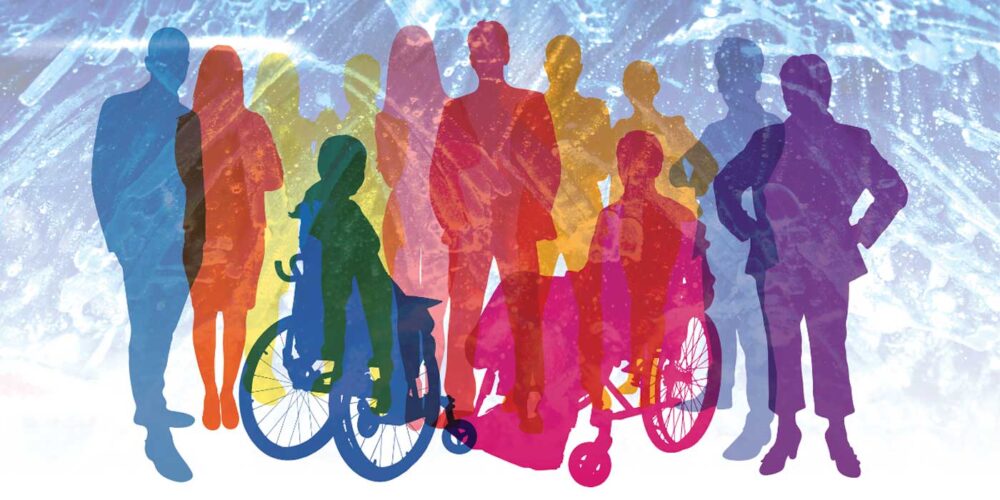When it comes to trendsetters, millennials lead the way in more ways than one, and businesses should start taking notice to ensure they stay competitive.
Born between 1982 and 2000, according to the U.S. Census, millennials represent more than one quarter of the nation’s population, numbering approximately 83.1 million.
“It’s critical for carwashes to market to millennials, and it all boils down to numbers,” asserts Katie Harris, founding partner of Spot On Solutions. “We are talking about 25 percent of the population with $200 billion in annual buying power.”
J.R. Atkins, MBA, owner of Something Different Companies (www.SomethingDifferentCompanies.com), recalls when another dominant generation, dubbed the baby boomers, shifted buying habits. And, although baby boomers were often labeled as the most influential, millennials are letting their presence be known, exceeding even the baby boomers, which the U.S. Census estimates are around 75.4 million in size.
“Millennials buying habits and communication methods are affecting all of us,” says Atkins. “Their spending dollars are increasing, not decreasing, which is the amount of money they have as disposable income.”
With extensive numbers fueled by billions in annual purchasing power, millennials are taking the wheel and steering the way for today’s buying trends.
The importance of value
“Millennials and past generations differ in many ways, but one of the big [differences] is millennials are drawn to civic responsibilities,” states Harris. “They have a strong desire to make a difference in the world around them and be a part of big things.”
This desire to make a difference impacts millennials in everything they do, including how they spend their money; and, in general, they care more about a business’ values compared to previous generations. Whether it is environmental issues, community outreach and charity, good employee relations, etc., millennials will take notice of the businesses that stand out from the rest and push toward making a difference.
Additionally, notes Atkins, millennials value the overall design or layout of a product/service. “So when considering two items — two purchasing selections with the same matter of functionality — millennials will typically buy the one with a better design. This could be from color, packaging and/or the way the product/service is communicated,” says Atkins.
Although the products/services offered and the overall values of a business are important, how these items are “communicated” to millennials is possibility more imperative. For instance, continues Atkins, a carwash owner and operator may think a five-dollar quick wash is self-explanatory, so what else is there to communicate? However, a potential millennial customer may ask, “Does this business get me, and does it appreciate who I am?”
To better adhere to the values of millennials, he adds, carwashes should implement the perception of time and an instilled level of trust within its messaging. “So noting ‘a good price from someone you can trust’ would be the kind of information millennials are looking for,” explains Atkins.
Out with old advertising approaches
As mentioned, how a business communicates is a crucial factor in millennials’ decisions to purchase new services/products or take their money elsewhere. And, this generation’s need to feel understood is influencing how businesses market their services.
“Millennials do not like advertising. They actually hate to feel marketed to,” asserts Harris. “They grew up being inundated with ads and have learned how to tune them out.”
To successfully target this generation, explains Harris, carwashes should avoid traditional advertising. “Look for ways to engage with them in a more natural way. It will resonate with them, and they will reward you with their business,” she adds.
In addition to turning to their peers for feedback, millennials flock to online review sites, social media and search engines to find more information on the latest products and services. “It is easier to assume millennials are always online,” says Atkins, adding that businesses should consider regularly posting across social media platforms.
Harris agrees, noting that businesses must ensure the conversation is not one-sided. “You need to find out where your potential millennial customers ‘hang out’ online; for example, in your area are they on Facebook, Twitter, Instagram, etc.? Then you need to be there too,” states Harris. “Do not interrupt the conversation on social media with pushy sales tactics, rather join their conversations and be social.”
Having a strong social media presence helps businesses appear more relatable to social-minded consumers, like millennials. However, even more important is a business’ actual Web presence. Millennials expect to see a clean, user-friendly website optimized to be mobile-friendly.
“How we as marketers or businesses sell to millennials or communicate to them definitely has to be mobile, any time, all the time,” asserts Atkins. “It has to be available for all devices, whether a smartphone, desktop, laptop or tablet.”
However, above all, websites must adhere to mobile users, stresses Atkins. “If your website isn’t mobile-friendly that is a deal killer; if your website is mobile-friendly but it doesn’t have much content on it then that becomes a deal killer; and if your website is mobile with lots of content but it is too hard to digest that is a deal killer. So you need a website that is formatted for online, is crisp from a design element and has brief pieces of information with the ability to drill down and get into details,” he continues.
In the future, Atkins sees this rise in mobile usage to change the way many businesses like carwashes target customers. “In an optimal world, and we are not there in a broad offering yet, we will be able to deliver messaging to the mobile device within a proximity of a carwash,” projects Atkins. “Right now, the technology is still cumbersome and costly, but this is where we are headed.”
Carwashes should start to keep this type of mobile messaging in mind, continues Atkins, adding that an example would be more promotions of VIP-type lanes for unlimited monthly customers. This type of marketing will appeal to millennials as well, who tend to prefer quick and convenient services.
VIP-type offerings provide customers with the ability to easily wash their cars on the way to or from work and avoid the potential for long wait times. “The advertising that communicates these services has to reflect the benefits both in an online offering and physical signage as well as any kind of verbal interaction the staff has with customers,” notes Atkins.
Selling to millennials at the wash
In addition to employing smart marketing strategies, promoting core business values and featuring innovative technology, carwashes can also target more millennials by maintaining a high level of cleanliness, bright lights and a lot of visibility within the carwash, such as large windows and glass, reports Atkins.
Moreover, since millennials tend to want swift services, these customers may be turned off by all hands-on wash packages. In fact, quick service is one contributor in the rise in popularly for certain wash types, such as flex-serves. To hone in on the need for speed, Atkins recommends carwashes incorporate the amount of time within their product descriptions online. If a carwash offers three wash packages, for example, it could advertise how the second package features everything in package one, plus an extra service and is only seven more minutes, explains Atkins.
Although rapid service is a crucial selling factor for millennials, this alone won’t effectively entice this generation to frequent a carwash, says Harris. “Millennials are all about the experience. They would rather spend money on an experience than a product or service. You want to look for ways that your carwash can be about more than just getting [a] car washed,” concludes Harris. “Millennials love to feel like they are part of a cause and that by doing their part they can make a difference. You want to look for ways to appeal to this trait.”














